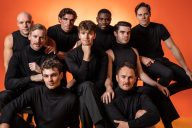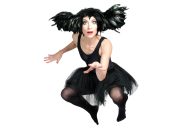Twenty years after it first premiered, The Sunshine Club is still raising an Indigenous voice, and the timing couldn’t be better.
Australian musicals can be a bit hit or miss, but successes have included The Boy from Oz, Hot Shoe Shuffle, Ladies in Black and Bran Nue Dae. As with the latter, The Sunshine Club is a refreshing First Nations story and a hailed landmark production.
Originally commissioned by the Queensland Theatre Company, The Sunshine Club first premiered in Brisbane in 1999. Written by proud Noonuccal Nuugi man Wesley Enoch, it features an array of musical styles composed by John Rodgers (Where the Heart Is).
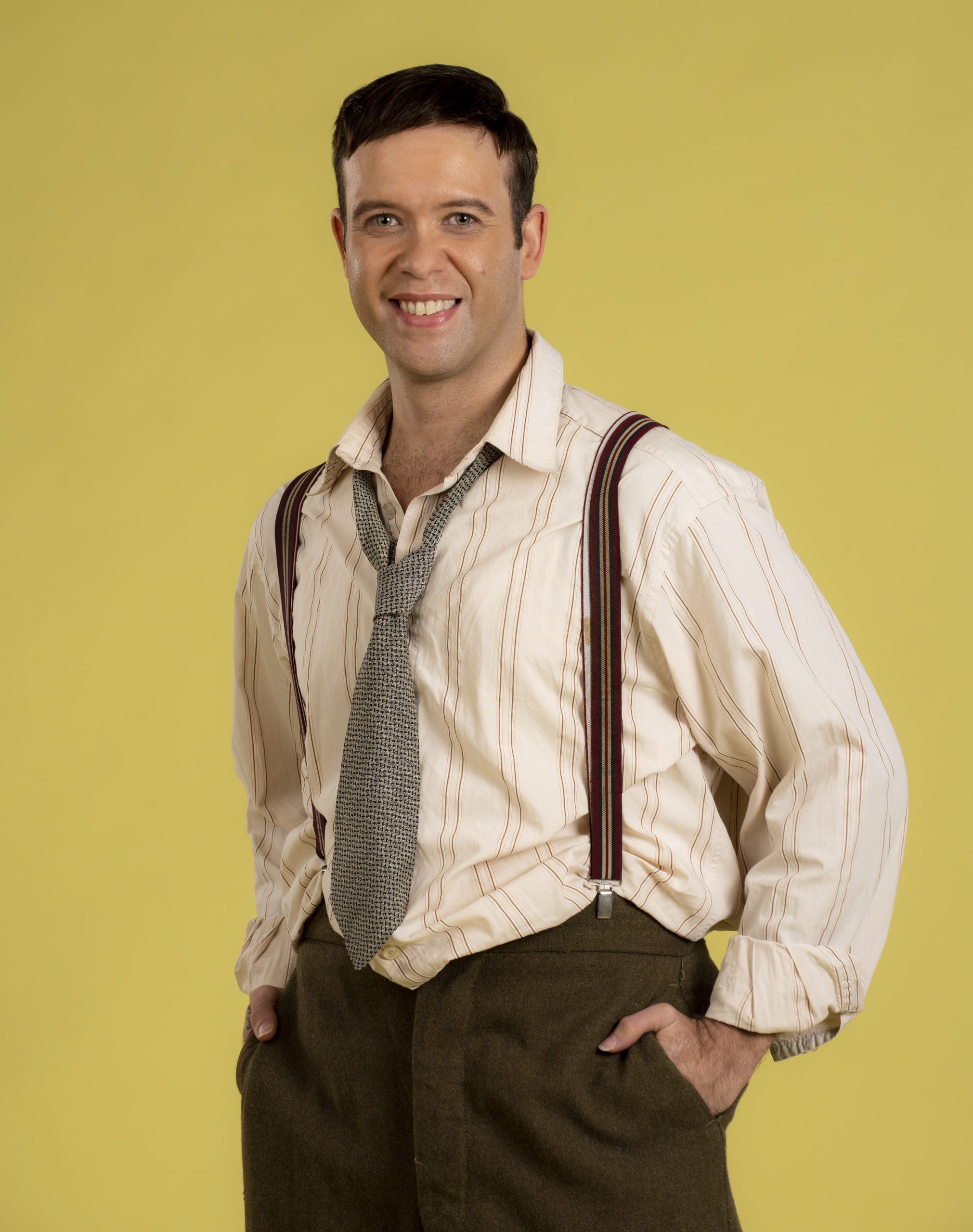
Garret Lyon plays Frank Doyle in The Sunshine Club
Its story is one the LGBTIQ+ community will relate to and empathise with. Themes of discrimination, diversity, equality and alliance are accompanied by a supporting feel-good score. Garret Lyon (Aladdin) plays Frank Doyle, a WWII soldier who returns home to the familiar racial issues of the time. In an act of bravado, he opens The Sunshine Club, a place where black and white folk can finally dance in harmony.
“Frank’s a very complex character,” says Lyon.
“He’s come back from WWII a changed man with hope that the world has also changed. He’s dealing with the aftermath of war, but I also wanted to make his character lively and fun, but still with the energy of a gentleman.”
“I’ve always played openly gay or queer characters where I was able to be an extension of myself” – Garret Lyon.
A part of the character’s determination for a new life is connecting with Rose (Claire Warrillow), his white neighbour who, through the Sunshine Club and the connection of dance, he can be close to.
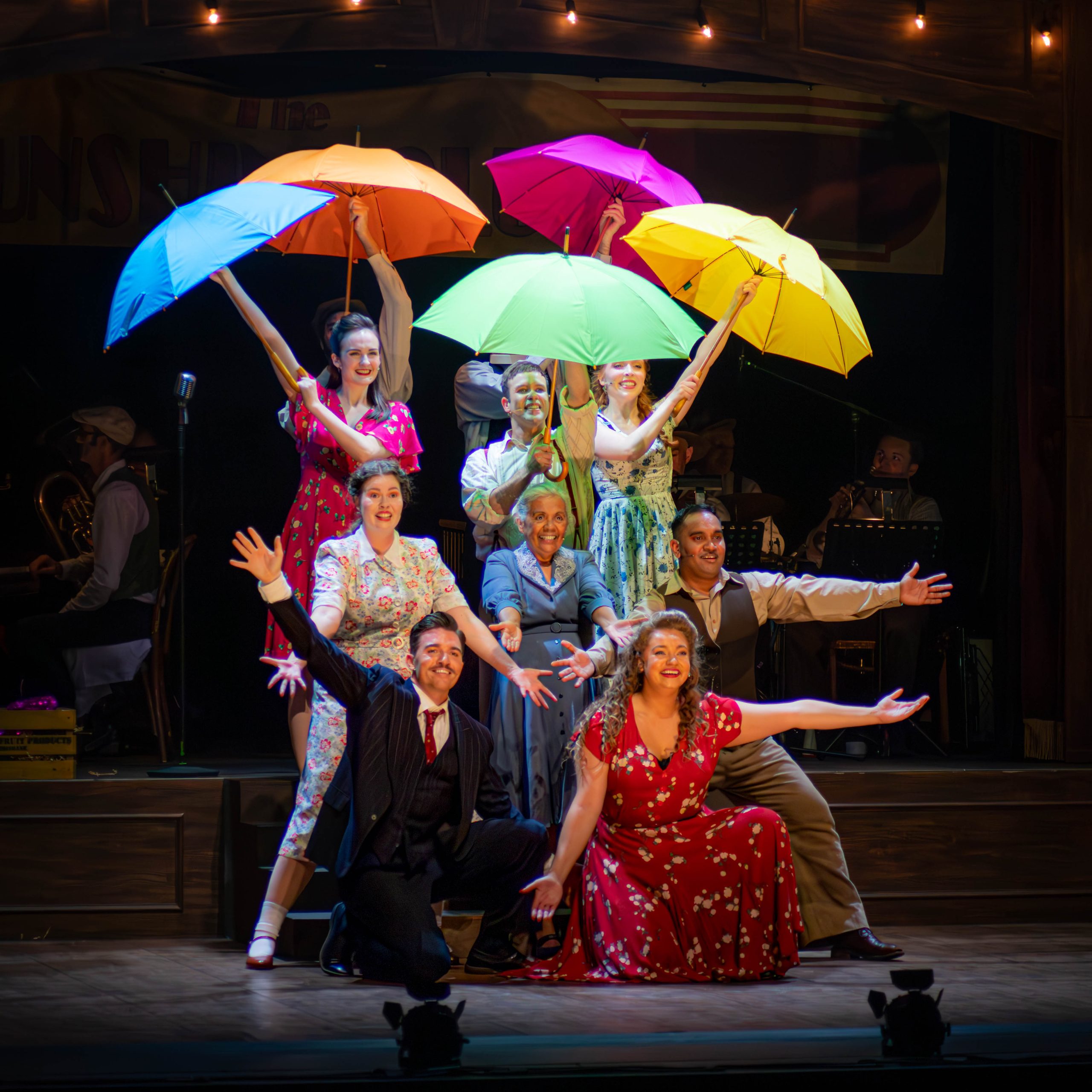
The cast of The Sunshine Club
“I had some concerns about playing a straight character from that era,” says Lyon.
“I’ve always played openly gay or queer characters where I was able to be an extension of myself. With Frank I had to pull it back and find those beautiful and unique things, but in a different form. So, it was a different version of me. I love performing in this show and telling its story, and I’m always discovering new things about Frank’s character.”
Another standout role in the story is Peter Walsh, a suave travelling salesman played by Trent Owers (La Cage Aux Folles).
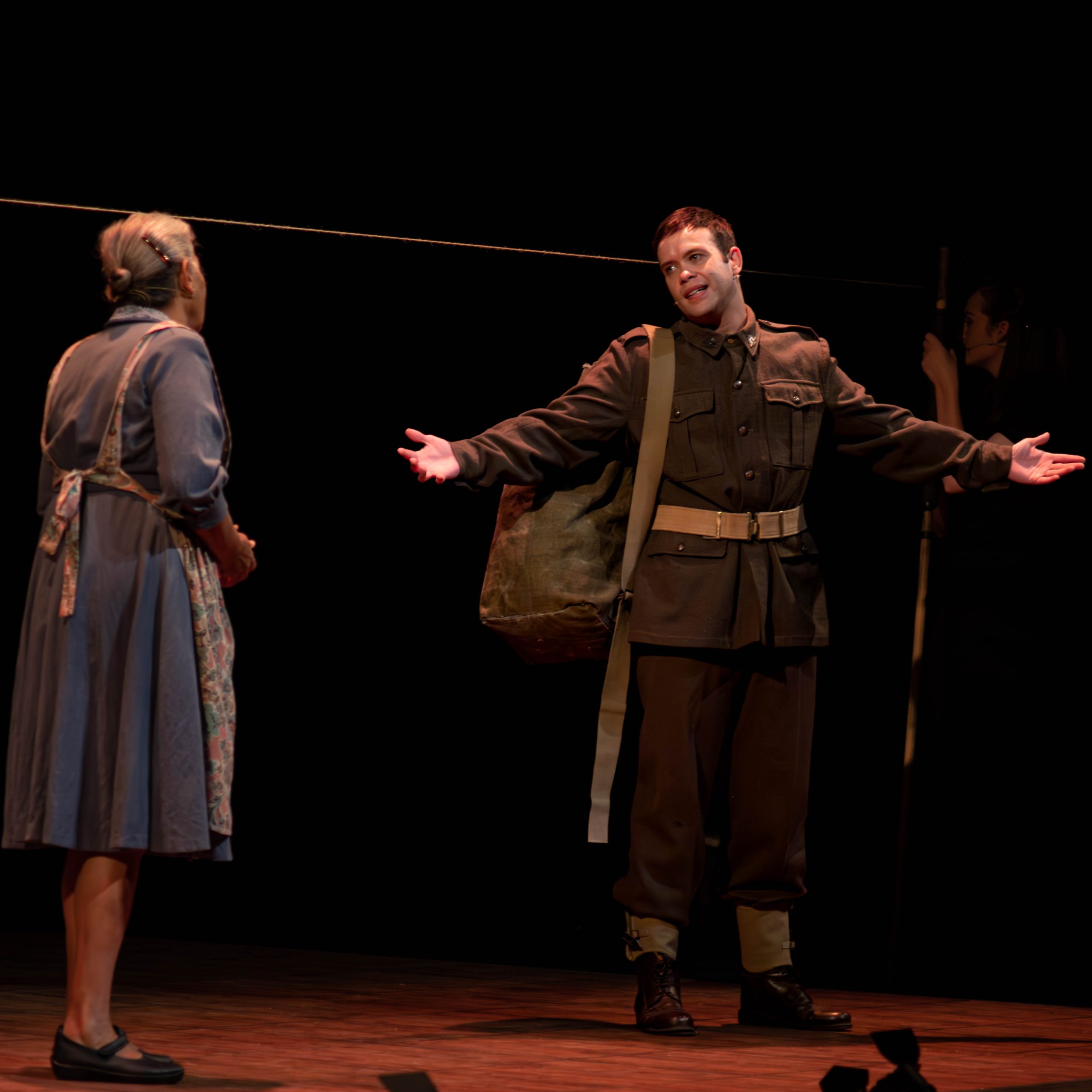
Garret Lyon as Frank Doyle in The Sunshine Club
“Peter is what I like to call a 1940’s ‘Fuck boy’,” says Owers.
“I had plenty of experience in high school pretending to be one while hiding my queer identity. So, whether that’s fortunate or unfortunate, I can do the role quite well having many years of practice! During our Brisbane season Director and Writer Wesley Enoch would always give me the same note – ‘More Smiling’. For a while, it was super confusing because it felt like I was smiling the entire show. But I began smiling in parts where I normally wouldn’t, flashing all my teeth, and it gave the character a whole other level of smarmy, even untrustworthiness.”
“Peter is what I like to call a 1940’s ‘Fuck boy’” – Trent Owers.
“My character’s journey touches on some risky subjects for the 1940s and even today, such as abortion and interracial relationships. I’ve worked closely with the different actresses I play opposite, making sure we’re all comfortable with the themes and the way they unfold. Having an intimacy co-ordinator is essential when dealing with touchy subjects.”
While the story focuses on these various topics, the treatment of First Nations peoples is at the show’s core. It is something Owers holds close to his heart.
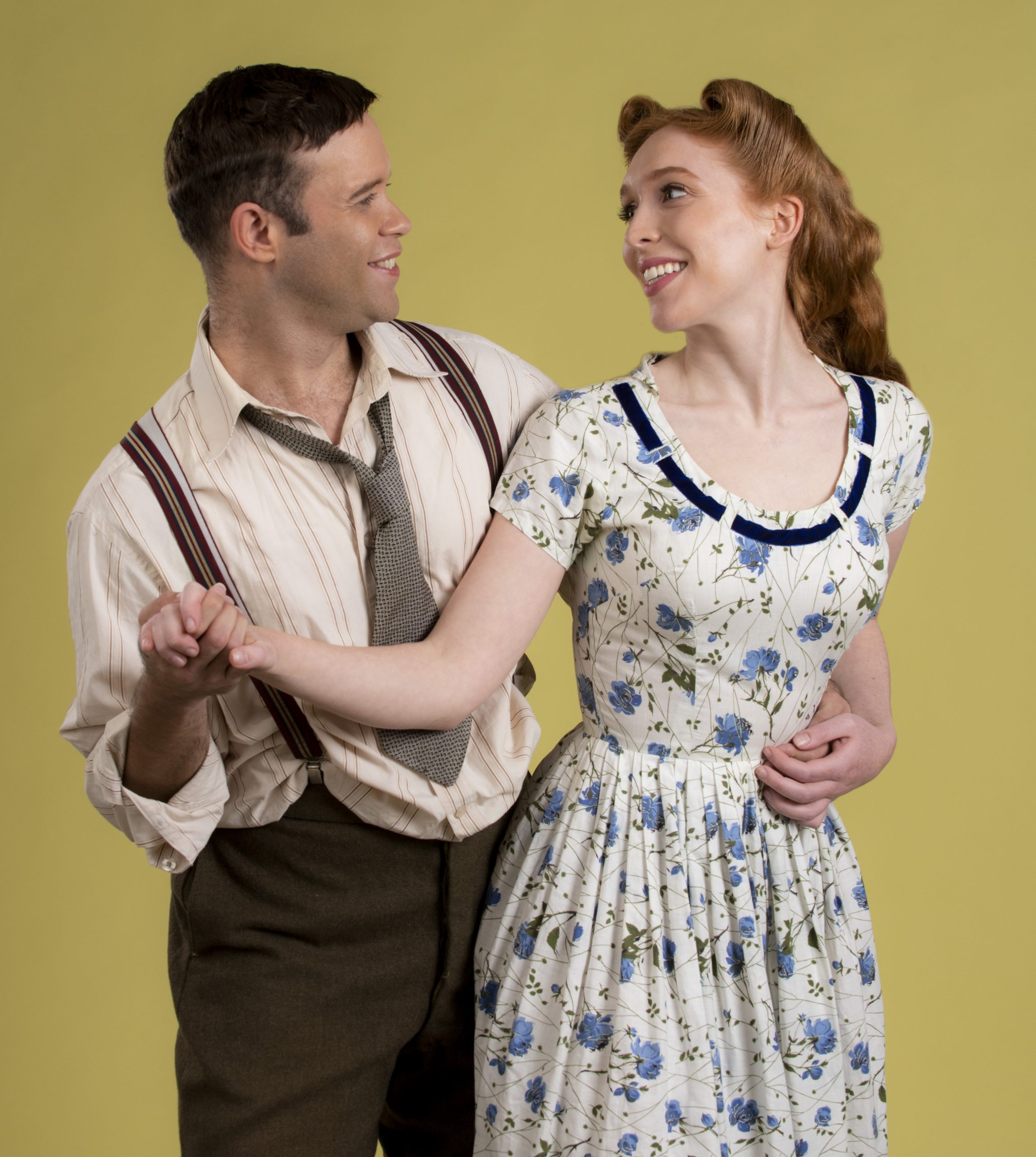
Garret Lyon as Frank Doyle and Claire Warrillow as Rose The Sunshine Club
“This production is still very relevant today and it’s quite disheartening that from when it first opened at the Sydney Opera House some twenty years ago, the issues are still something we’re dealing with today.”
The Hit Production cast also includes Tibian Wyles, Roxanne McDonald, Dale Pengelly, Colin W Smith, Samantha LeClaire, Jade Lomas-Ronan and Naarah.
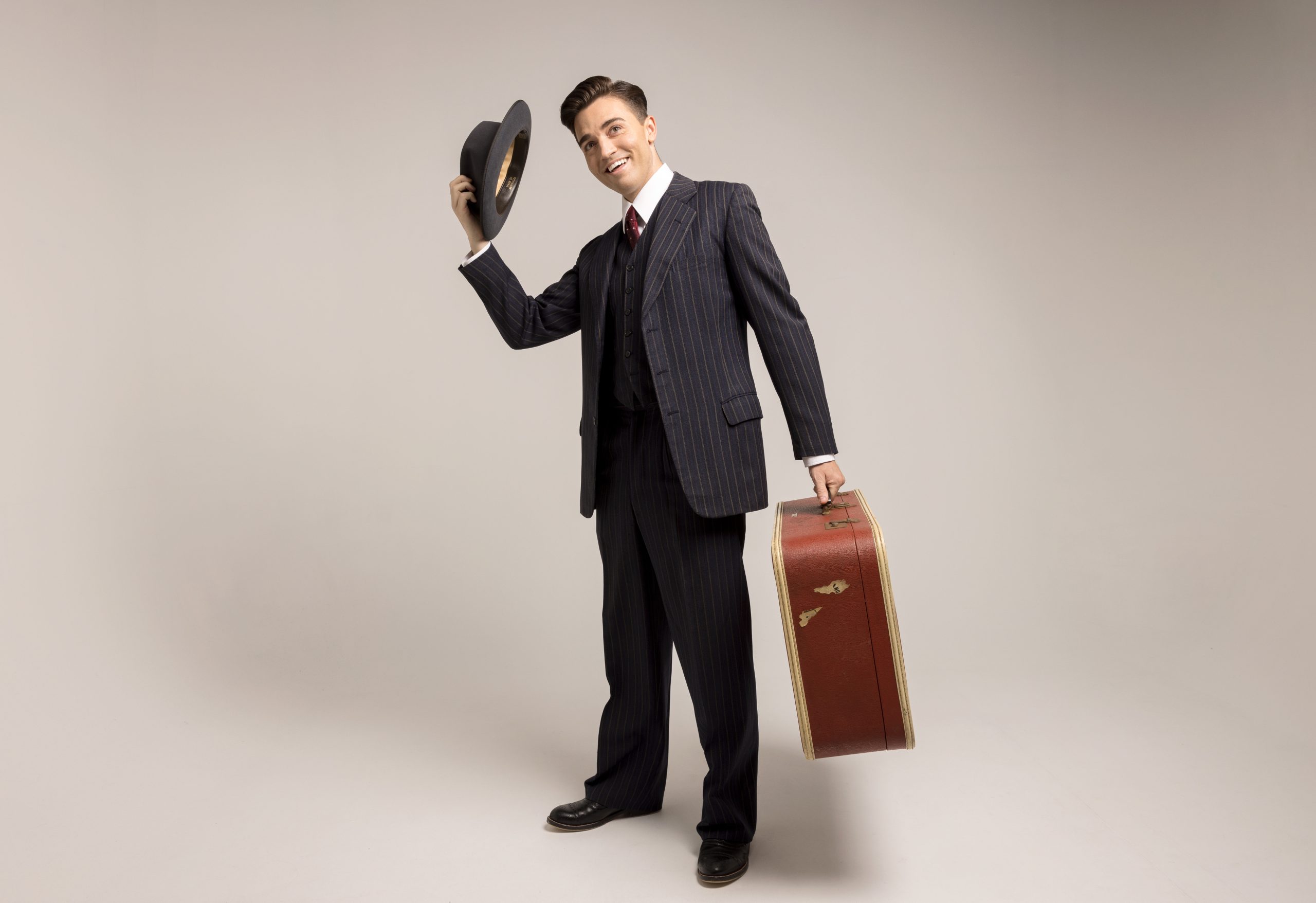
Trent Owers plays Peter Walsh in The Sunshine Club
While Australia decides to incorporate an Indigenous Voice to Parliament, Wesley Enoch’s acclaimed production allows audiences to reflect on the past, present and future of our First Nations Peoples and a chance at positive change. One of the show’s songs is aptly titled ‘If Not Now Then When?’
“I hope that audiences learn a little more about our First Nations history,” says Owers.
“Although there are heavy themes involved, there’s also a lot of Joy, happiness and optimism. On top of that, Wesley Enoch’s writing and John Rogers’ music are outstanding! I’m super proud to be showing black history to people of all backgrounds and colours. It has a strong message and it’s something everyone needs to see.”
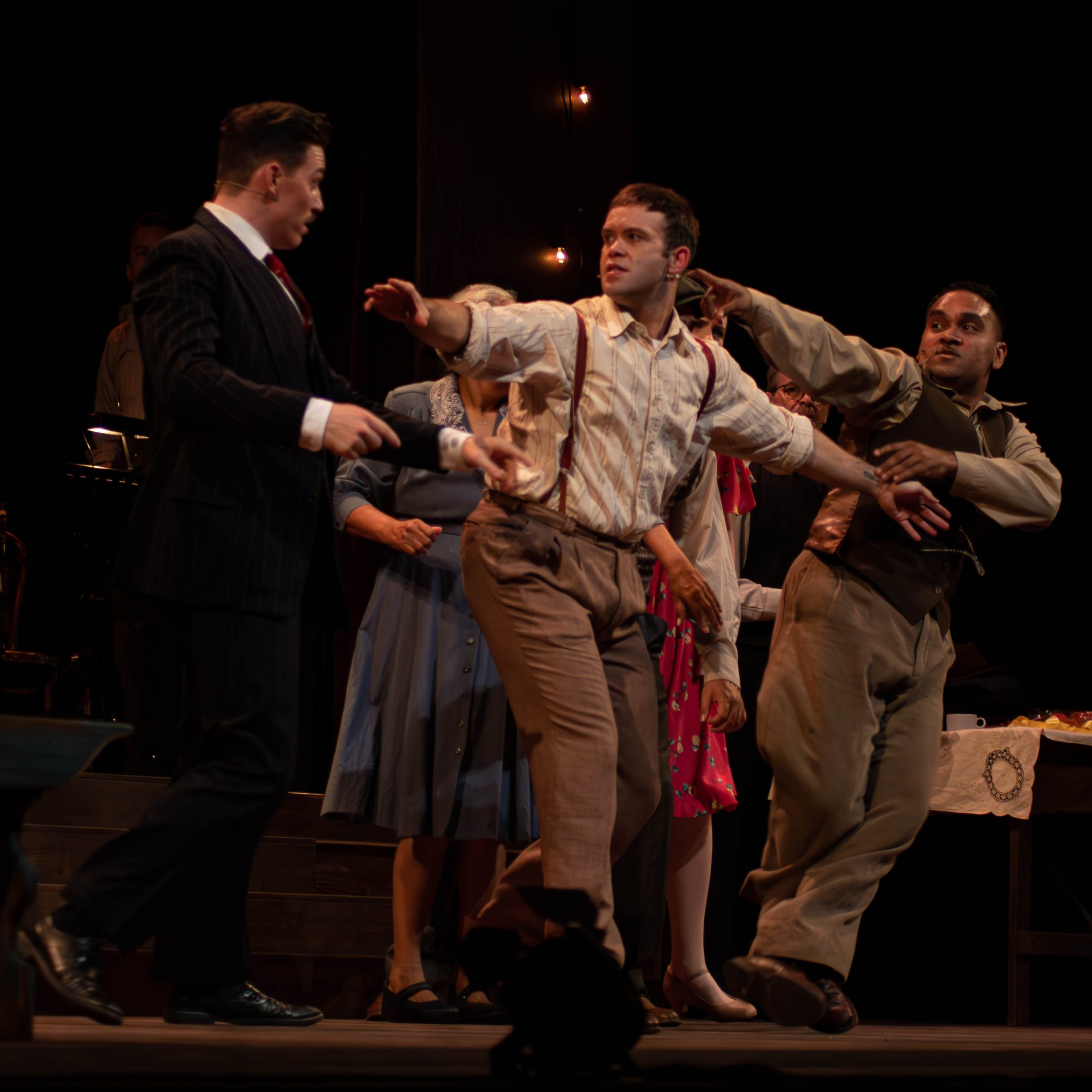
Garret Lyon in a scene from The Sunshine Club
Understandably, Garret Lyon feels the same, hoping people will discover a new perspective on what Indigenous people went through, particularly during the post-WWI period.
“It’s a show that makes you think,” he says.
“The show has moments, scenes and songs that are very relevant to The Voice today even though it was written in the Nineties. I do believe audiences are leaving the show with a bit more of an idea about what it was like for First Nations people back then and still is today. I also hope they dance, laugh and cry but most of all I want them to leave feeling warm and fuzzy!”
The Sunshine Club is currently touring Australia.
For more visit: hitproductions.com.au
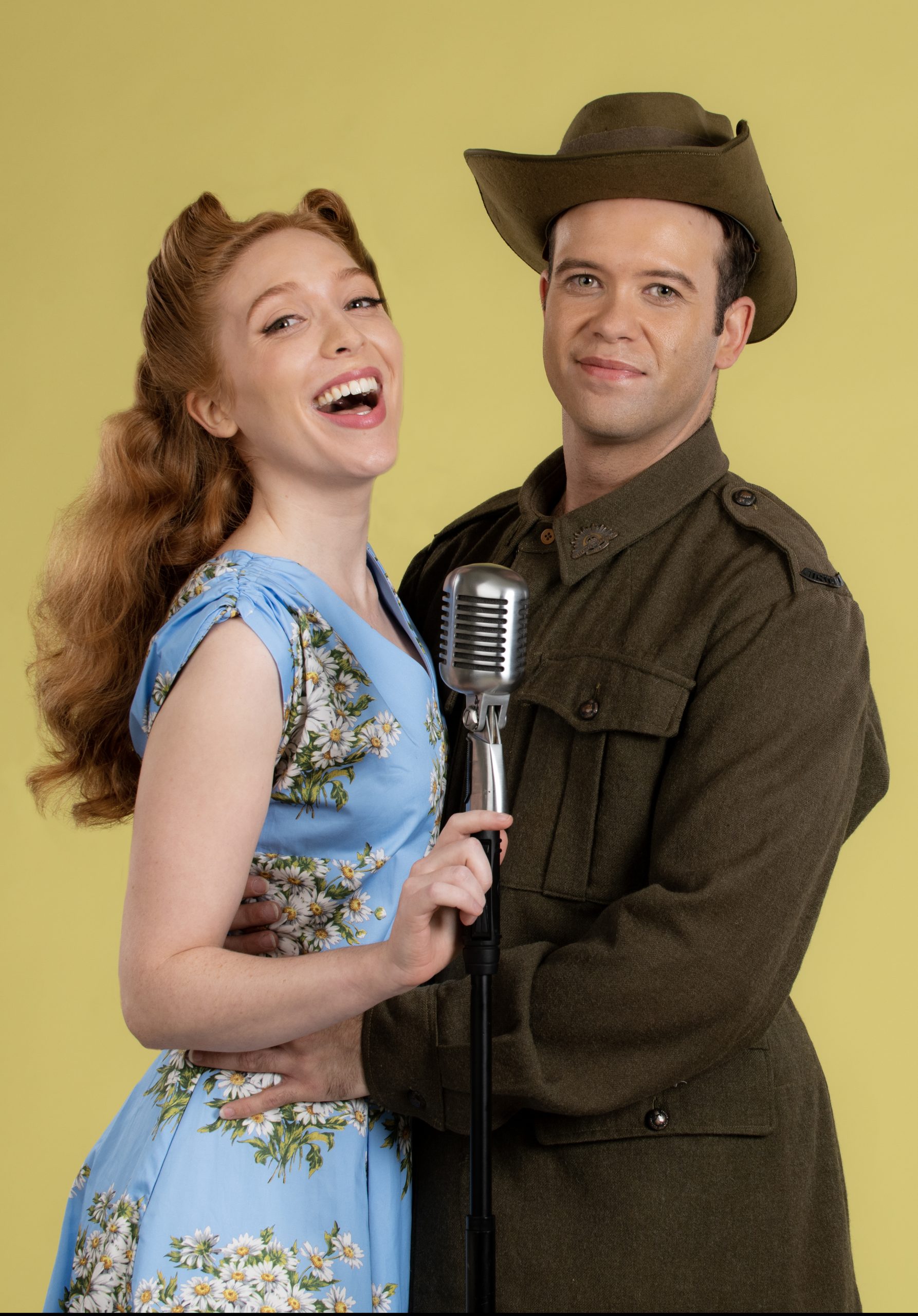
Garret Lyon as Frank Doyle and Claire Warrillow as Rose The Sunshine Club



